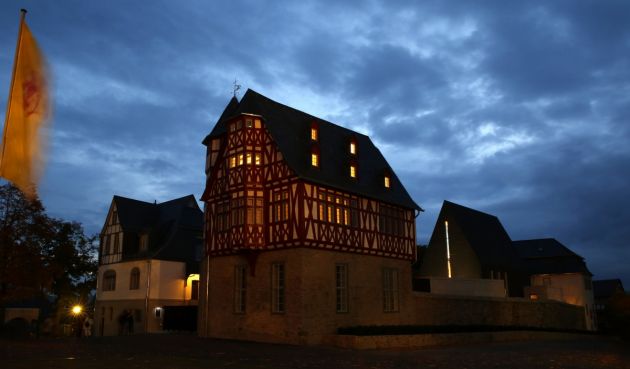Vatican ousts German bishop after millions spent on residence

The Vatican has forced from office the German prelate who became known as "the bishop of bling" after spent 31 million euros ($43 million) of church funds on his own residence.
The resignation of Bishop Franz-Peter Tebartz-van Elst of Limburg had been accepted, the Holy See said in a statement Wednesday noting he was unable to engage in a "fruitful exercise" of his ministry in the ancient German town.
The spending emerged during the first year for Pope Francis as the pontiff at a time he had been preaching against excess and urging a humble style of living by the clergy.
Many Germans were outraged at the extravagant building project at Tebartz-van Elst's official residence which had conference halls, a museum, private apartments and a chapel.
Tebartz-van Elst apologised for misjudgement and carelessness but denied he had done anything wrong.
He "will in due course be assigned a different role," the Vatican statement said.
Monsignor Manfred Grothe will run the diocese as an administrator held by Tebartz-van Elst is filled.
Pope Francis urged the clergy and faithful of Limburg to accept the decisions of the Holy See "with docility and willingness to rediscover a climate of charity and reconciliation."
In December Pope Francis said, "The grave financial and economic crises of the present time ... have pushed man to seek satisfaction, happiness and security in consumption and earnings out of all proportion to the principles of a sound economy.
"The succession of economic crises should lead to a timely rethinking of our models of economic development and to a change in lifestyles."
Germany's church tax, collected from worshippers by the state and handed over to the churches, raised 5.2 billion euros for Catholics and 4.6 billion euros for Protestants, Reuters news agency reported.
Germany's Catholic bishops welcomed the decision by Pope Francis.
"We clearly feel there is an extensive need for the decision-making bodies and structures of the Catholic Church, which have grown over centuries and have proven themselves in many cases, to be made clearer and accountable," said Cardinal Reinhard Marx, who heads the bishops' conference.